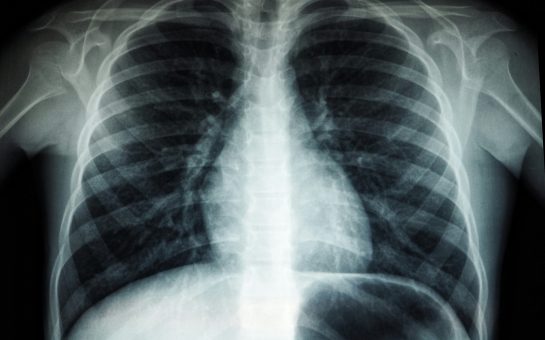Blackpool recorded the greatest proportion of women who smoked while pregnant and through delivery in the North West, according to recent NHS data.
Fourteen per cent of mothers were still smoking at the time of delivery out of all maternities with a known smoking status, based on data collected from April 2024 to March 2025.
This total does not include the 9% of pregnancies with an unknown smoking status.
This shows a considerable proportion of women, around one in seven, smoking throughout their pregnancies.
This number sits well above the proportions in neighbouring areas such as Lancashire, which had one in 13 mothers smoking, and Liverpool, with one in 14.
The North West is just shy of having the second highest regional proportion of pregnant smokers in England, with one in every 15 mothers (6%) known to be smoking.
Blackpool is still much higher than the national average for England of 6% of women still smoking at the time of delivery.
This data does not account for non-combustible nicotine products such as vapes and other nicotine containing products. These numbers are unknown.
Whilst not completely risk-free, the latest evidence from Office for Health Improvement and Disparities shows vaping is substantially less harmful than smoking, and the NHS recommends vaping as an effective way to stop smoking as they do not produce tar or carbon monoxide – the two main toxins in cigarette smoke.
Carbon monoxide is particularly harmful to developing babies.
Smoking rates are declining in the North West
Since 2006 the number of pregnant smokers in England has been cut in half largely due to successful services and initiatives in place to support women.
Support services available in the North West have made a substantial difference in the lives of women wanting to quit, and numbers fell for a sixth consecutive year in 2024.
Andrew Furber, Regional Director of Public Health for NHS England in the North West, said in a statement: “Smoking is incredibly harmful to our health, especially during pregnancy. It can cause serious problems, including babies being born too early, having some kind of birth defect, or even dying.
“Even being around cigarette smoke can cause health issues for pregnant women and their baby, so we strongly encourage people to quit smoking before becoming pregnant.”
During the last six years, the Greater Manchester Smokefree Pregnancy programme has successfully supported more than 6,000 pregnant women and their partners to quit smoking.
The programme offers all pregnant women and their partners a free and personalised maternity stop-smoking support service. It includes one-to-one advice and guidance, free nicotine replacement therapy (NRT), regular carbon monoxide (CO) screening, and an incentive scheme to stay smokefree. Similar programmes have since been rolled out across the country to support more parents-to-be to stop smoking.
New mum Sameera* experienced the effects of services available in Greater Manchester. She said: “I wanted to stop smoking so that I could give my baby the healthiest start possible, but it wasn’t easy.
“The support was a huge help. They gave me nicotine replacement products like gum and patches to help me fight my cravings and I had invaluable one-to-one support.
Regional disparity in Blackpool
High levels of smoking in pregnancy correlate with local deprivation, health inequalities, or gaps in access to maternity stop smoking services.
Areas with known higher deprivation indices (e.g., Blackpool, Knowsley, St. Helens, Wirral, Halton) all had above-average smoking in pregnancy rates.
The Index of Multiple Deprivation (IMD) is the official dataset that ranks areas in England from most to least deprived. It combines data on: income, employment, health, education, crime, barriers to housing and the living environment to rank local authorities.
In the most recent release from 2019, Blackpool ranked as the most deprived local authority.
Blackpool Betterstart is working to change the reputation and the culture surrounding women who smoke while pregnant as well as the perception that they are making an informed choice.
Coming from poverty can expose complex challenges such as generational traumas, normalised behaviours and a mistrust of services.
This gap between the pregnant women and the services who want to help them requires building trust in the services available, and putting people on the ground has shown the most success at making a difference.
Dr Lauren Wolfenden, Development Manager at Blackpool Betterstart, said “Things like incentive schemes have helped and you always see this influx of change – however, we’re not seeing significant behavior change in terms of health behaviors. What we are seeing is that people have changed what their coping response might be.
“Health behaviours in pregnancy or accessing services – these are not things that change overnight and especially in an area like Blackpool where they’ve got such high rates of poverty and deprivation, and unplanned or unwanted pregnancies. They actually need to support people to understand why they would even want to change their behaviour when it is so normalised.
She said initiatives won’t work to accomplish real change because the community and individual beliefs with regard to health behaviours like smoking are entrenched.
Over its last eight years Blackpool Betterstart has succeeded in helping more people by using paid workforce members called Community Connecters.
These Community Connectors also live in Blackpool and work with the community within it to help connect people to programmes, services, and support as a bridge to the community.
Blackpool Betterstart hopes to take a new approach and have a pilot planned to have connectors attending appointments to enhance their community based approach and reach the right people in difficult to reach postcodes to bring the services to them.
Many women she has worked with rely on what they have heard within their social circles from friends and family for pregnancy advice and have assumptions and prejudices about using services which shape how they perceive what is available to them.
Dr Wolfenden said this also can shape what they think is okay to do – such as drinking during pregnancy, or simply reducing the amount of cigarettes, which is better than nothing.
She said that data shows that the services may not be reaching those most in the deprived postcodes and women are accessing services often when it is too late, such as in late stage pregnancy, and programmes can suffer from attrition numbers are very high.
It is often the bigger picture that is forgotten – it is not just that women smoke while pregnant, but grew up with a background that normalised some behaviours and was aggravated by a web of disadvantage.
A lot of women can be aware that it is bad and not know why – “they know the headlines and not the harms.”
Pregnant women are turning to vaping
Though temporary, the use of incentives, community-based approaches, and campaigns for programmes and services for mothers and expectant mothers has shown great success for those who have used them when looking at the declining smoking numbers.
The area has made significant progress in reducing the number of pregnant smokers who were known to use tobacco at the time of delivery, with a nearly 30 percent decrease in the proportion of women smoking since 2023.
Despite this success, numbers are likely to be much higher when counting the estimated amount of pregnant mothers who vape.
Blackpool Better Start’s maternity services are unable to support women who come to them with vaping problems.
Dr Wolfenden said lots of women switch straight away to vaping when they find out they are pregnant because they believe it is better for their health.
She said a vape might be better in the short and medium term if a pregnant woman is thinking of switching back to tobacco – but is it not a solution, and there is still a lot of learning to do.
“Right now we don’t know the serious long-term consequences in pregnancy: what does this do to children? We are seeing people becoming highly addicted to their vapes in pregnancy and coming to the stop smoking maternity services to quit vaping because they’re starting to have some really serious health consequences.”
She said that the majority of services cannot support a woman who is pregnant who wants to stop vaping, as staff do not have the resources to do so.
She criticised the NHS Swap & Stop scheme which supports people to swap tobacco for vapes as potentially leading to the normalisation of vape use in pregnancy.
Blackpool Betterstart has feedback from community groups saying people assume vaping is not harmful because they are being given away, and the message of the Swap & Stop scheme changes the narrative which is that they want to stop pregnant women using anything at all.
They hope to pool the resources to develop materials and educate women on the different types of vapes and the various nicotine contents available as well as the importance of avoiding illicit vapes used from the black market, which is also really high in Blackpool.
Feature photo by Nastia Petruk on Unsplash




